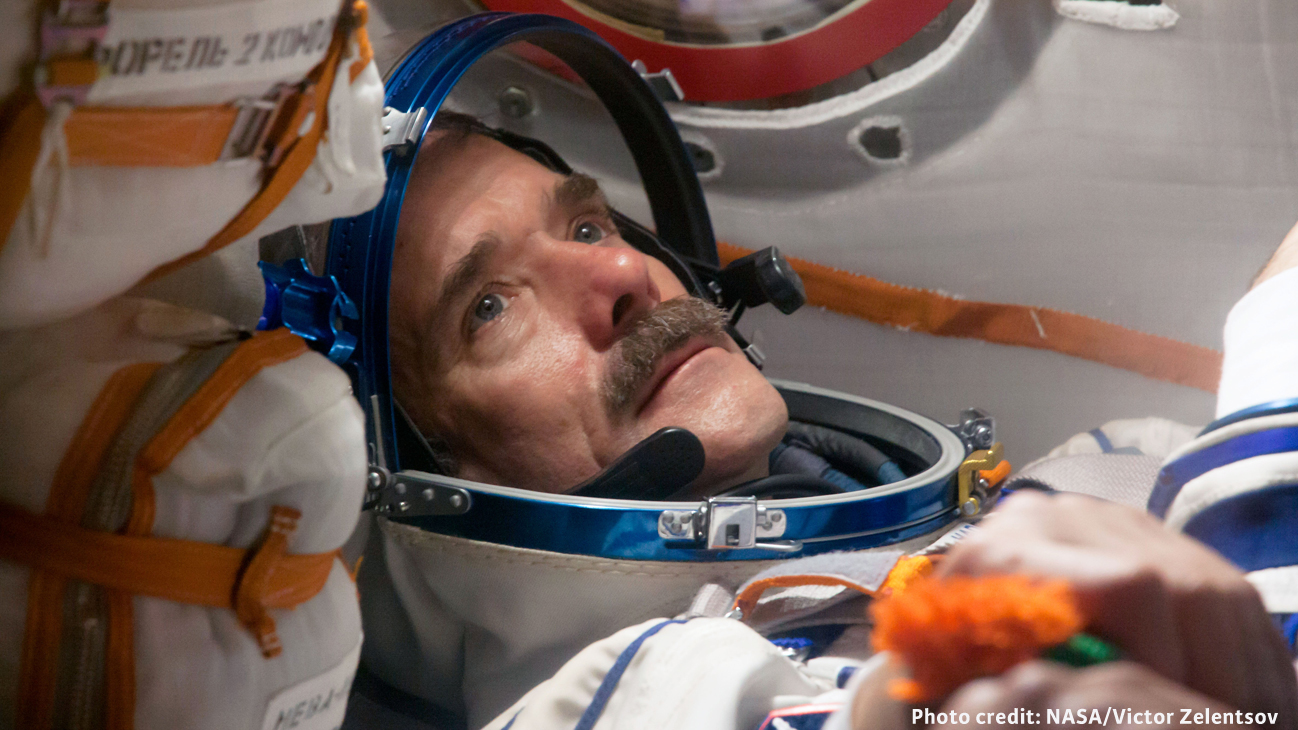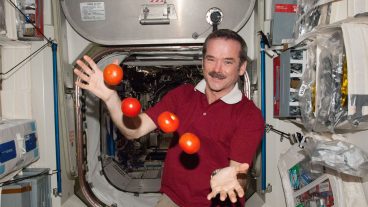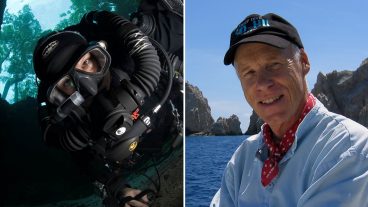Colonel Chris Hadfield has flown into Earth’s orbit three times, logging nearly 4000 hours in space. In 2013 he became the first — and only! — Canadian Commander of the International Space Station spending 6 months off planet. He had some scares in space but nothing could keep him from going back. How did Colonel Hadfield conquer a fear of death?
In a fascinating interview with Mach, an NBC News Digital brand, Colonel Hadfield talks about why he, and most of his fellow astronauts, aren’t afraid of death despite the odds of 1 in 20 astronauts dying on the job. Below is a segment from the article, read the whole piece here.
Astronauts hear the question all the time: When you strap in atop an enormous stick of explosive fuel and then shoot into the breathless vacuum of space, aren’t you afraid to die?
Hadfield’s answer is always “no.” To him, the question is based on a flawed premise: “In common life, we make fear and dangerous synonymous, but they’re not,” he says. They only seem that way because few people prepare extensively for dangerous things, he explains, but being prepared is exactly what astronauts do through years of intense training.
“The greatest antidote for fear is competence,” Hadfield continues. “If you’re spending 10 years preparing for one launch, then hopefully by the time it arrives you’ve changed your skill set such that a launch is no longer foreign and unknown. In fact, it’s the opposite. It’s exhilarating.”
Like riding a bicycle
As Hadfield tells it, astronauts regard space missions the way most of us regard riding a bicycle. “When you don’t know how to do it, it’s scary,” he says. “It makes little kids cry. But eventually you master the skills. Then you can ride the bike, and it’s no longer scary.”
That mindset pretty much holds true across the astronaut corps. It helps explain why one seldom hears astronauts talk about fear, or about the body count in their line of work.
Instead, they focus on the skills they’ve acquired floating in the simulated zero-g world of the Neutral Buoyancy Lab at the Johnson Space Center in Houston; learning high-speed maneuvers while piloting a T-38 jet; or huddling inside NEEMO, an undersea habitat off the Florida Keys. (Hadfield was a commander there, too.)
NASA uses such training exercises to prepare astronauts for just about every foreseeable situation. Of course, some of the problems that inevitably crop up are things that no one anticipated.
There was the time when faulty sensors prevented Hadfield’s space capsule from docking with Mir, forcing him to improvise a way in. And the surreal incident in 2013 when Italian astronaut Luca Parmitano’s helmet sprang a leak and he nearly drowned during a spacewalk outside the ISS.
Hadfield had a suit mishap of his own on a spacewalk in 2001: A bit of chemical defogger that had been applied to his helmet visor got into his eye, causing him to tear up so badly that for a few scary moments he was unable to see.
On Hadfield’s final expedition, the ISS sprang an ammonia leak. “Ammonia is a very nasty chemical that you don’t want to get inside the ship,” he says matter-of-factly. “We had to do an emergency spacewalk on one day’s notice to go out and fix a system that was leaking.”
Fighting risk with expertise
Hadfield sees such incidents not as exceptions to his bicycle metaphor but as evidence in support of it. The “competence” he talks about refers not to following a specific set of instructions but to a general approach to problem solving that kicks in whenever it’s needed.
…
Of course, not all the crises astronauts face are manageable. Some end like the Challenger and Columbia disasters, both of which killed entire space shuttle crews. Surely that must spook the astronauts, right?
Hadfield acknowledges Challenger and Columbia as proof that death is always a possibility. But instead of the loss of life, he and his fellow space-flyers focused on positive lessons from the disasters. “We said, ‘What can we learn from these horrific events so that spaceflight will be safer in the future?’”
In other words, don’t worry about things you can’t control. Keep working to address problems up to the last possible moment. If you die, you die. Ultimately, death is something that lies beyond an astronaut’s control, so in some sense it’s irrelevant. That mindset is part of what NASA selects for, and part of what astronauts train to achieve.
Referred to as “the most famous astronaut since Neil Armstrong,” Colonel Chris Hadfield is revered for making outer space accessible to millions, and he continues to bring the marvels of science and space to everyone he encounters.
Interested in learning more about Chris and what he can bring and do for your organization? Email us at [email protected].




